 The Phase Change Matters e-mail newsletter is a weekly summary of the latest news and research on phase change materials and thermal energy storage. To subscribe, visit www.puretemp.com/subscribe. For more frequent updates, follow @puretemp on Twitter or visit the Phase Change Matters blog, www.puretemp.com/pcmatters.
The Phase Change Matters e-mail newsletter is a weekly summary of the latest news and research on phase change materials and thermal energy storage. To subscribe, visit www.puretemp.com/subscribe. For more frequent updates, follow @puretemp on Twitter or visit the Phase Change Matters blog, www.puretemp.com/pcmatters.
COMPANY NEWS
Horwath is new president of North American PCM association
Peter Horwath, chairman and CEO of Insolcorp LLC of New London, N.C., has been chosen to lead the Phase Change Materials Industry Association of North America.
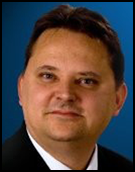 Representatives of eight founding companies elected Horwath, right, in an e-mail vote completed this week. He replaces Joseph A. Grzyb, who announced his resignation from the post earlier this year.
Representatives of eight founding companies elected Horwath, right, in an e-mail vote completed this week. He replaces Joseph A. Grzyb, who announced his resignation from the post earlier this year.
The association was founded in October 2017. Its mission is to promote the development and use of phase change material in North America.
“Phase change materials have the ability to impact many industries and lives in a very positive way,” Horwath said. “Our industry is growing exponentially and a manufacturers association has been much needed to create awareness, improve standardization and help drive market growth. I’m looking forward to helping launch the new association. It is an honor to work with such a great group of people and companies helping to move this industry forward.”
The association’s founding members are Insolcorp; Phase Change Energy Solutions, Asheboro, N.C.; Microtek Laboratories, Dayton, Ohio; Encapsys LLC, Appleton, Wis.; Outlast LLC, Golden, Colo.; Croda Inc., Edison, N.J.; Cold Chain Technologies, Franklin, Mass.; and PureTemp LLC, Minneapolis, Minn.
NEW PRODUCT
Incubator uses PCM to keep lab samples at optimum temperatures
Intellectual Ventures’ Global Good fund has signed a licensing agreement with JP Selecta of Spain to manufacture and distribute a microbiological incubator for laboratories in areas with unreliable electrical power.
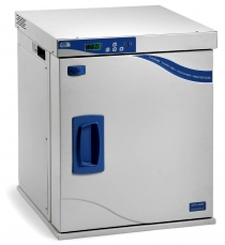 The body of the Incudigit-SV 30L is lined with phase change material, enabling the device to maintain a user-adjustable temperature setpoint of 35° C, 36° C or 37° C for at least eight hours without power.
The body of the Incudigit-SV 30L is lined with phase change material, enabling the device to maintain a user-adjustable temperature setpoint of 35° C, 36° C or 37° C for at least eight hours without power.
“This incubator will help frontline health workers perform important culture-based microbiological tests in places where power is unreliable – a critical step in managing diseases like tuberculosis, sepsis, enteric and diarrheal diseases, and sexually-transmitted bacterial infections,” said Maurizio Vecchione, executive vice president of Global Good.
Three members of the Intellectual Ventures team that developed the incubator (Michael Friend, principal investigator; Simon Ghionea, senior researcher and electrical engineer; and Andy Miller, senior researcher and mechanical engineer) fielded questions about the device.Q: What was your role in the development of the Incudigit-SV 30L?
A: The team came up with the initial concept, analyzed and designed the first-generation prototype, tested in the lab and the field and then transitioned the device to JP Selecta for the product development cycle. After the first product units were developed, the team then verified the performance of the units.
Q: What was the biggest challenge in developing the device?
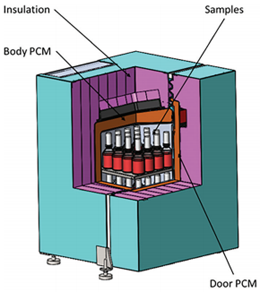 A: The device has to be able to support power blackouts which could occur with ambient conditions above and below the temperature setpoints (of which there are three), so developing a method to properly assess the state of the PCM was a challenge. Additionally, while the initial PCM chosen for the device had great performance at first, it was discovered that after repeated deep cycling that the enthalpy was depleting. This PCM could be recharged using an overheat procedure; however this imposed an unacceptable impact on the use case. We wound up having to change to a more stable PCM with slightly less performance than the original.
A: The device has to be able to support power blackouts which could occur with ambient conditions above and below the temperature setpoints (of which there are three), so developing a method to properly assess the state of the PCM was a challenge. Additionally, while the initial PCM chosen for the device had great performance at first, it was discovered that after repeated deep cycling that the enthalpy was depleting. This PCM could be recharged using an overheat procedure; however this imposed an unacceptable impact on the use case. We wound up having to change to a more stable PCM with slightly less performance than the original.
Q: Describe the typical user of the device.
A: The typical user is a medical technician/microbiologist in a laboratory which does not have reliable power. In most countries in the developing world this may be all the labs with the exception of the national reference laboratory.
Q: When will manufacturing/distribution begin?
A: With product launch this week, manufacturing/distribution is just beginning. The first units will be delivered to Doctors Without Borders for pilot tests in South Sudan and Niger in January as well as the African Medical and Research Foundation and the Lao-Oxford-Mahosot Hospital Wellcome Trust Research Unit. As this is allowing microbial culture to take place in labs where it previously could not occur, it will be difficult to estimate quantities.
Q: Describe how the device functions, especially how PCM is used. Does the device include a battery to provide active cooling and power the electronics when external power is not available?
A: The device uses PCM as a “thermal storage battery” in order to control the temperature (see reference paper http://medicaldevices.asmedigitalcollection.asme.org/article.aspx?articleid=2718461). A key feature is to maintain the PCM in a state such that it can maintain incubation setpoint temperatures at 35, 36, and 37 C during power blackouts with ambient conditions that can be above or below the setpoints. No active heating or cooling is used, only a small battery to maintain the electronics to perform temperature and power monitoring. [see YouTube video]
Q: What are the specs on the phase change material?
A: It’s a paraffin with a peak melt point of 37 C and a thermal storage capacity of 160 joules per gram.
Q: How much PCM is used in each device?
A: 19 liters.
PATENTS
Insulating container and transportation device
U.S. patent application 20180362243 (applicant Solee Science & Technology Co. Ltd., Wuhan, China):
“An insulating container comprises a container body and a container cover connected to the container body. The container both and the container cover each comprises a frame and a plate arranged on the frame. The plate comprises, from inside out, an external high strength sheet, an extruded polystyrene sheet, phase-change insulating sheets made of phase-change material, and an internal sheet. A phase-change process of the phase-change insulating sheets cooperates with a refrigeration system of the transportation device to precisely control the temperature of the insulating container and a refrigerator truck to be near a phase-change temperature. In the present disclosure, the phase-change insulating sheets made of the phase-change material remain to be in a solid state before or after occurrence of a phase change, so that the structure of the insulating container does not change with the phase change and a leakage problem of the phase-change material does not exist.”
Implantable thermal therapy devices
U.S. patent application 20180360652 (applicant Medicool Technologies Inc., Rochester, Minn.):
“Implantable thermal therapy devices, systems, and methods are provided for the treatment of pathological conditions including arrhythmias and trauma. The implantable thermal therapy devices and systems are specifically structured to deliver transient cooling to a target tissue, and to gradually dissipate the heat energy transferred from the target tissue to other body masses in a controlled and delicate manner. In some examples, a phase change material can be used to accomplish such a gradual dissipation of the heat.”
YEAR IN REVIEW
Most-viewed blog posts of 2018: New coffee mug, new testing protocol
News about ThermAvant‘s new coffee mug and Alexium‘s new testing protocol top the list of most-viewed Phase Change Matters blog posts in 2018:
1. ThermAvant’s new coffee mug is designed to get the ‘burn’ out faster (Aug. 27)
2. Alexium says it’s working to establish wide acceptance of new testing protocol (June 8)
3. Fluorination process enhances barrier properties of HDPE (Jan. 12)
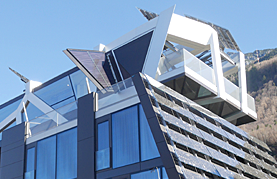 4. Inspired by nature, ‘active energy building’ takes wing in Liechtenstein (Feb. 8)
4. Inspired by nature, ‘active energy building’ takes wing in Liechtenstein (Feb. 8)
5. Patent application: Thermal battery with encapsulated PCM (Jan. 3)
6. Alexium International CEO Dirk Van Hyning resigns (June 1)
7. PCM heat-recycling system keeps tugboats ready for action (Jan. 19)
8. Phase change material ensures a hot shower from the start (April 20)
9. PCM-equipped heat exchanger designed for use in reefer trucks, cold rooms (Sept. 14)
10. Sunamp, Trina Solar sign deal to combine thermal batteries with heat pumps (Nov. 5)
The PureTemp website welcomed visitors from 166 countries and more than 6,000 cities this year. The top 10 countries:
1. United States
2. India
3. United Kingdom
4. Canada
5. Germany
6. China
7. Australia
8. France
9. Netherlands
10. South Korea
Illustrating the breadth of interest in phase change material, each dot in the map below represents a city that generated one or more visits to puretemp.com in 2018.
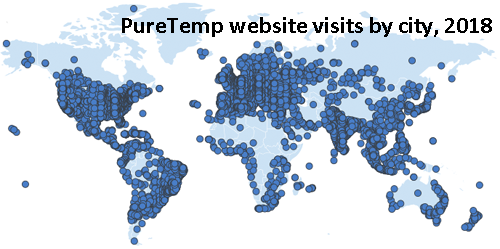
IN BRIEF
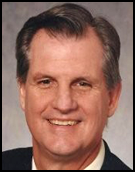 • Dennis McGill, operations advisor at Pegasus Capital Advisors, has joined Phase Change Energy Solutions as chief executive officer and chairman of the board. McGill, right, has more than 30 years of experience in senior financial and executive leadership roles. For the past three years, he has been the CEO and chairman of the board for ReCommunity Recycling of Charlotte, N.C.
• Dennis McGill, operations advisor at Pegasus Capital Advisors, has joined Phase Change Energy Solutions as chief executive officer and chairman of the board. McGill, right, has more than 30 years of experience in senior financial and executive leadership roles. For the past three years, he has been the CEO and chairman of the board for ReCommunity Recycling of Charlotte, N.C.
• Malta Inc., a spinoff of Alphabet’s Moonshot Factory, has raised $26 million in Series A funding. The Massachusetts company is developing an electro-thermal energy storage system that stores energy in the form of the thermal differential between hot and cold storage media.
• Croda International, maker of phase change materials and other specialty chemicals, is No. 3 on Management Today‘s list of Britain’s Most Admired Companies 2018. Diageo and McDonald’s took the top two spots.
• From Andrew Chang, regional operations director at Ice Energy, on LinkedIn: “Today was a major milestone for Ice Energy. We commissioned our 100th Ice Bear in the SCE LCR program in #OrangeCounty! We are currently offsetting about 1.5MW for 4 hours every day in Orange County.”
• MIT researchers have developed a way to use light to trigger the storage and release of waste heat from car engines and other sources. “Once melted and activated by ultraviolet light, the [phase change] material stores the absorbed heat until a beam of visible light triggers solidification and heat release,” Phys.org reports. “Key to that control are added molecules that respond to light by changing shape from one that impedes solidification to one that permits it.”
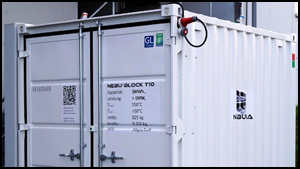 • From LinkedIn: “It might not look like it, but this is how VIPs help to store energy. Vacuum insulated panels, that is. ZAE Bayern cooperates with va-Q-tec, Nebuma GmbH, Verallia, and Lungmuß Feuerfest to make industrial high-temperature energy storages more efficient and less hard to find.” Nebuma’s 20-foot mobile container, shown at right, is designed to store about 16 MWh of heat at a temperature of 1,000 degrees Celsius.
• From LinkedIn: “It might not look like it, but this is how VIPs help to store energy. Vacuum insulated panels, that is. ZAE Bayern cooperates with va-Q-tec, Nebuma GmbH, Verallia, and Lungmuß Feuerfest to make industrial high-temperature energy storages more efficient and less hard to find.” Nebuma’s 20-foot mobile container, shown at right, is designed to store about 16 MWh of heat at a temperature of 1,000 degrees Celsius.
• Dr. Yixiang Gan of the University of Sydney is among 11 researchers to win fellowships from the Australia-India Strategic Research Fund for 2019. His focus: “Optimizing thermal energy storage with phase change materials: with applications to solar energy storage in Australia and India.”
• Registration is open for the 44th Stanford Geothermal Workshop, to be held Feb. 11-13 at Stanford University in California.
• Registration is open for Energy Storage Europe, “the leading international trade fair for energy storage,” to be held March 12-14 in Dusseldorf, Germany.
• The 14th Conference on Advanced Building Skins, to be held Oct. 28-29, 2019, in Bern, Switzerland, has issued a call for papers. The deadline for submissions is June 1. Registration for the conference is expected to open once the program is published in April.
• Pelican BioThermal has appointed Lynaye Reynolds as worldwide director of quality. She joined the company three years ago as the quality manager at its site in Leighton Buzzard in the United Kingdom.
• 1414 Degrees’ molten silicon biogas energy storage system will be installed at a wastewater treatment plant in South Australia. The $3.2 million (AUS) pilot project is a joint effort of 1414 Degrees and SA Water.
RESEARCH ROUNDUP
For our full list of recent academic research, see puretemp.com/academic. Here are highlights from the past week:
From International Journal of Refrigeration:• Experimental studies on solidification and subcooling characteristics of water-based phase change material (PCM) in a spherical encapsulation for cool thermal energy storage applications
From Construction and Building Materials:
• Thermal energy storage characterization of cement-based systems containing microencapsulated-PCMs
From Renewable and Sustainable Energy Reviews:
• Seasonal thermal energy storage system for cold climate zones: A review of recent developments
From Heat and Mass Transfer:
• Analysis of heat transfer in latent heat thermal energy storage using a flexible PCM container
From Energy Conversion and Management:
• Plate type heat exchanger for thermal energy storage and load shifting using phase change material
From Applied Thermal Engineering:
• Experimental studies on the charging performance of single-tank single-medium thermal energy storage
• Investigation of thermal energy storage properties of a microencapsulated phase change material using response surface experimental design methodology
• Financial and energetic evaluation of solar-assisted heat pump underfloor heating systems with phase change materials
From IOP Conference Series: Materials Science and Engineering:
• Thermal Performance Through the Use of Radiant Barrier and Phase Change Material in Concrete Flat Roofs
From Solar Energy Materials and Solar Cells:
• Synthesis of novel form-stable composite phase change materials with modified graphene aerogel for solar energy conversion and storage
From International Journal of Heat and Mass Transfer:
• Development of vacuum impregnation equipment and preparation of mass/uniform shape-stabilized phase change materials
NETWORKING
Connect with PCM experts and industry leaders on LinkedIn
 Nearly 1,400 people have joined a LinkedIn group devoted to the discussion of phase change material and thermal energy storage. The Phase Change Matters group is an interactive complement to the award-winning blog and newsletter of the same name.
Nearly 1,400 people have joined a LinkedIn group devoted to the discussion of phase change material and thermal energy storage. The Phase Change Matters group is an interactive complement to the award-winning blog and newsletter of the same name.
You are invited to join the group and connect with PCM and TES experts from around the world. This week we welcome Supriya Bommana, intern at Thuringian Institute for Textile and Plastics Research, Rudolstadt, Germany; Anthony Ruffine, vice president / renewable energy and sustainability officer at GAF, Parsippany, N.J.; Vicki Wray, senior laboratory manager, Surry Chemicals Inc., Mount Airy, N.C.; Ritul Shah, senior R&D lead EV at Virani Auto Tech, Surat, India; Renee Ganger, client specialist, American Thermal Instruments, Dayton, Ohio; and Ankit Srivastava, technical marketing executive and sales engineer, New Delhi, India.